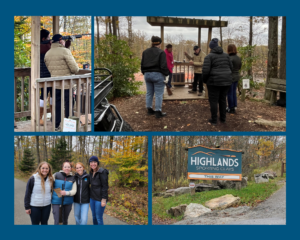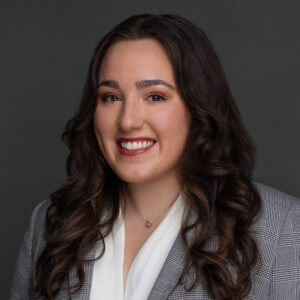 Babst Calland’s Women’s Initiative recently hosted an Instructional Sporting Clays Event at Highlands Sporting Clays, bringing together clients and women attorneys for a fun and empowering afternoon of learning, networking, and camaraderie.
Babst Calland’s Women’s Initiative recently hosted an Instructional Sporting Clays Event at Highlands Sporting Clays, bringing together clients and women attorneys for a fun and empowering afternoon of learning, networking, and camaraderie.
Participants — from first-time shooters to seasoned enthusiasts — enjoyed a hands-on tutorial on gun safety, received expert guidance from Highlands’ outstanding trappers, and shot through 7 stations for a total of 50 clays each. …

 Social media has become the modern town square for many public officials. Whether it’s sharing a recap of a school board meeting, celebrating a community event, or commenting on local issues, platforms like Facebook and Instagram are now a routine part of how leaders connect with their constituents. But what happens when those online conversations intersect with Pennsylvania’s Right-to-Know Law? To read the full article by
Social media has become the modern town square for many public officials. Whether it’s sharing a recap of a school board meeting, celebrating a community event, or commenting on local issues, platforms like Facebook and Instagram are now a routine part of how leaders connect with their constituents. But what happens when those online conversations intersect with Pennsylvania’s Right-to-Know Law? To read the full article by  The U.S. Department of Transportation issued an Interim Final Rule effective October 3, 2025, instituting an immediate and significant change for the qualification of women- and minority-owned businesses in the DOT’s Disadvantaged Business Enterprise (DBE) and Airport Concessions Disadvantaged Business Enterprise (ACDBE) Program. For purposes of the DBE/ACDBE program, women- and minority-owned businesses were historically presumed to be disadvantaged, automatically meeting one of the requirements for DBE status; this is no longer the case.
The U.S. Department of Transportation issued an Interim Final Rule effective October 3, 2025, instituting an immediate and significant change for the qualification of women- and minority-owned businesses in the DOT’s Disadvantaged Business Enterprise (DBE) and Airport Concessions Disadvantaged Business Enterprise (ACDBE) Program. For purposes of the DBE/ACDBE program, women- and minority-owned businesses were historically presumed to be disadvantaged, automatically meeting one of the requirements for DBE status; this is no longer the case. 
 Recent activity from the FTC indicates yet another shift in the Commission’s view on non-compete agreements, the latest in a turbulent 16-month period for this topic that began with the FTC’s May 2024 publication of a final rule banning most non-competes throughout the country. In their article, FTC Withdraws Non-Compete Appeal, Previews a More Focused Approach, Steve Antonelli and
Recent activity from the FTC indicates yet another shift in the Commission’s view on non-compete agreements, the latest in a turbulent 16-month period for this topic that began with the FTC’s May 2024 publication of a final rule banning most non-competes throughout the country. In their article, FTC Withdraws Non-Compete Appeal, Previews a More Focused Approach, Steve Antonelli and 



 In accordance with the Pennsylvania Municipalities Planning Code, a municipal zoning hearing board possesses exclusive jurisdiction to hear and render final adjudications over a number of land use matters. In their recent article Commonwealth Court Finds Objectors May Have Standing to Intervene in Appeals of Zoning Enforcement Notices,
In accordance with the Pennsylvania Municipalities Planning Code, a municipal zoning hearing board possesses exclusive jurisdiction to hear and render final adjudications over a number of land use matters. In their recent article Commonwealth Court Finds Objectors May Have Standing to Intervene in Appeals of Zoning Enforcement Notices,  On July 31, 2025, EPA published its highly anticipated Interim Final Rule to extend several deadlines in 40 C.F.R. Part 60, Subparts OOOO, OOOOa, OOOOb and OOOOc that were promulgated in EPA’s 2024 Methane Rule. That same day, environmental groups filed a lawsuit challenging the Interim Final Rule. Absent a stay by the court, which the environmental groups are currently not seeking, the Interim Final Rule and the various extended deadlines are effective.
On July 31, 2025, EPA published its highly anticipated Interim Final Rule to extend several deadlines in 40 C.F.R. Part 60, Subparts OOOO, OOOOa, OOOOb and OOOOc that were promulgated in EPA’s 2024 Methane Rule. That same day, environmental groups filed a lawsuit challenging the Interim Final Rule. Absent a stay by the court, which the environmental groups are currently not seeking, the Interim Final Rule and the various extended deadlines are effective.  Melanie S. Lampton
Melanie S. Lampton
